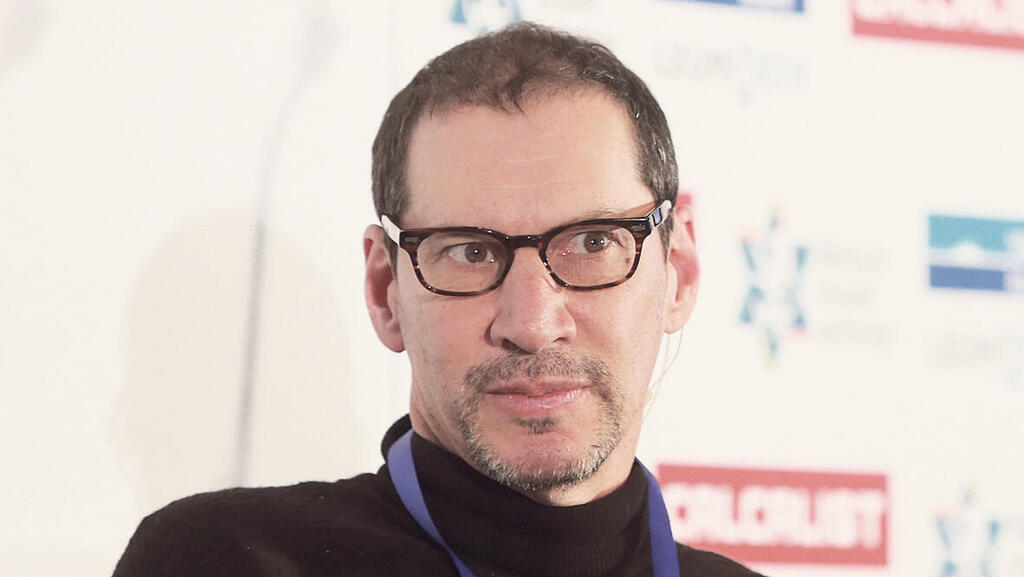
Insight Partners' Jeff Horing: "Wiz looked expensive every round, but in hindsight everybody made money"
The veteran VC says Israel’s startup scene still delivers—even as valuations, AI competition, and IPO hurdles mount.
Jeff Horing, founder of the venture capital firm Insight Partners—currently the largest investor in Israeli high-tech—visited Israel this week and stressed that the firm’s primary activity in the country is now centered on Seed and Series A funding.
Historically, Insight was known for investing in late-stage rounds. But in Israel, Insight has always been focused on younger startups. Even in early-stage deals, the firm now faces strong competition from major players such as Sequoia and Greylock.
Horing has been investing in Israel for over 20 years. Among Insight’s most prominent Israeli investments are companies like Wiz—which in the midst of being acquired by Google for approximately $32 billion—as well as public firms monday.com and Wix. Insight has also backed large private companies such as Island, Armis, Moon Active, and Transmit Security.
In January, Insight closed its 13th fund with $12.5 billion in committed capital, most of which is available for investment.
Speaking in a rare public appearance, Horing shared that 87% of Insight’s investments in Israel have been in early-stage startups. “Our success in Israel has been amazing,” said Horing, citing major exits like Own’s sale to Salesforce, Run:AI’s acquisition by Nvidia, and WalkMe’s sale to SAP.
After leading the local boom in unicorn creation in 2021, Insight significantly slowed its pace of new investments in Israel. The recent announcement that Liad Agmon would be stepping down as a managing director also raised questions about the firm’s ongoing commitment to the country. But Horing was unequivocal: “I’m all in on Israel,” he said multiple times, reaffirming the firm’s long-term belief in the Israeli tech ecosystem. Insight continues to operate an Israeli office led by Dani Aronovitz.
Horing noted that Insight is investing in Israel at the same pace as in Silicon Valley. He also acknowledged that global innovation has slowed in recent years—until the breakthrough of generative AI. “There's no question in my mind Israel has the highest quality entrepreneurs in the world, full stop. This is the probability of finding the right mix of high integrity, hard work, smarts, and hustle is better here than just about anywhere else in the world,” he said. “You have the military, a strong dominance in cyber, and an entrepreneurial culture that rivals Silicon Valley. At least five companies have spun out of monday.com, and even more from Wix.”
Wix, currently valued at around $10 billion on Wall Street, was Insight’s first investment in Israel.
Despite his optimism, Horing admitted that Israel lags behind in the AI race, particularly in foundational model development and key sectors like AI-powered software tools. “Israel doesn’t yet have a standout company in AI models or even AI tools,” he said. “But we’ve already made 15 AI-related investments in Israeli companies. Israel is catching up quickly.”
On valuations, Horing acknowledged the challenges of the current environment. “It’s one of the hardest investment environments I’ve ever seen in terms of data points challenging you at the same time,” he said. “Evaluations could appear to be quite rich and you're really taking a lot of leaps of faith on the talent to come up with ideas that could be significantly bigger than historically the average company has proven to be. But there's a lot of innovation happening, so in between the cracks there's plenty of really exciting companies that we find that we think are priced fairly. It's very difficult sitting in our shoes to judge ultimately what's the potential size of an opportunity and it's easy to kind of dismiss something that's expensive because the numbers don't seem to support it. But then Wiz, for example, every round looked expensive to anybody objectively looking from the outside. In hindsight, every round was very well priced for the investors because everybody made money on it.”
